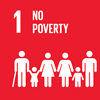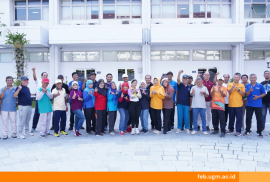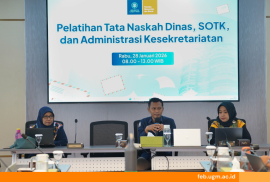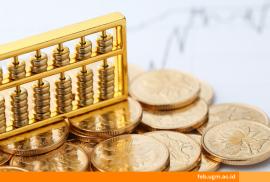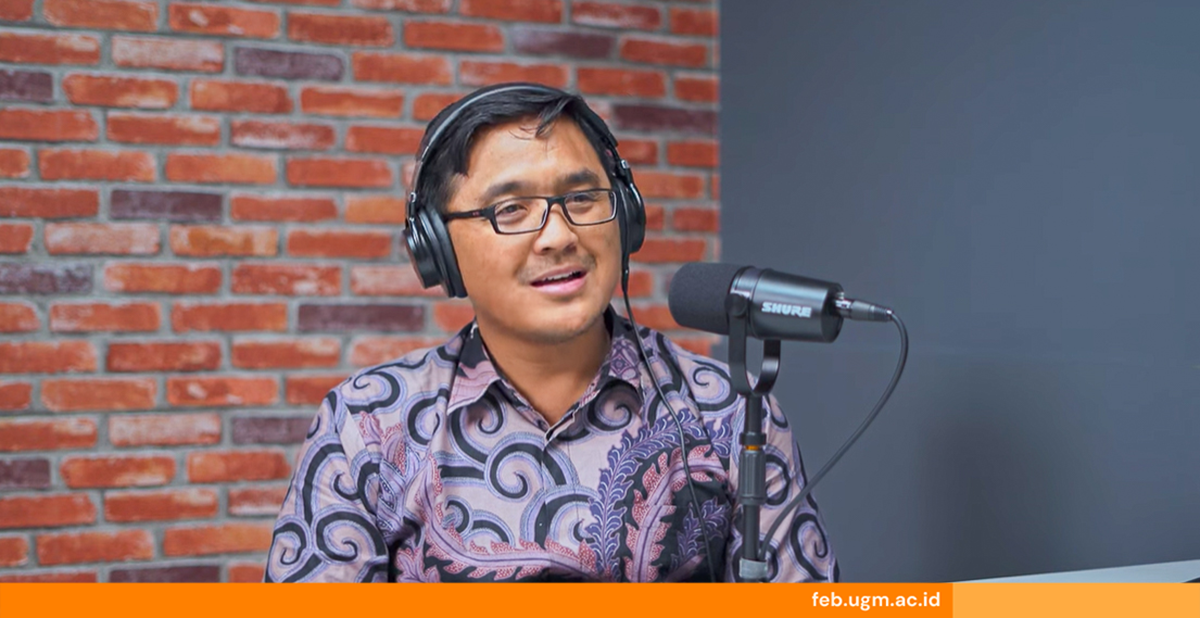
Ramadan and Eid al-Fitr are special moments that Muslims eagerly anticipate. Indonesians often express their joy and excitement during these moments by shopping for fasting and Eid needs, buying everything they desire.
Without proper control and planning, these shopping activities can become highly impulsive. So, how can students plan their finances and manage their spending priorities during this time?
A lecturer from the Department of Economics at the Faculty of Economics and Business UGM, Akhmad Akbar Susamto, S.E., M.Phil., Ph.D., explained that this phenomenon is natural from a religious and cultural perspective. However, proper planning is required to keep finances healthy before and after Eid.
“It is important to think seriously about what items we will buy and where the funds will come from,” he explained in the FEB UGM podcast titled Rahasia Kelola Keuangan Menjelang Lebaran, Bebas Tekor! (Secrets of managing finances before Eid, free from debt), recently.
In managing finances, he continued, having a shopping plan and prioritizing needs is essential. Before making expenditures, it is necessary to determine the items that are needed.
“Before planning expenditures, we must determine which urgent needs are less urgent. Then, we should rank these needs from the most essential to those that can be postponed,” Akbar added.
In addition, Akbar mentioned that the presence of digital payment capabilities and “pay later” options is a factor that contributes to increased shopping behavior. These payment conveniences ultimately lead to impulsive buying behavior.
“Don’t buy when you crave, either physically or mentally. Looking for discounts is fine, but why buy it if you don’t need it?” Akbar said.
Akbar added that financial planning for Eid also includes religiously recommended spending, namely giving alms. Although almsgiving is not mandatory, Akbar urges Muslims to set aside non-essential expenses for almsgiving.
The time of Eid is also synonymous with the Holiday Allowance (THR). According to Akbar, people can use this THR for relatively unimportant things.
“We should not use our savings to buy things that are not urgent because the THR is an allowance to celebrate the holiday. So we must be careful in our financial planning,” he added.
“Do not let us do less urgent things with the savings that we saved long ago for more important and urgent things. Now we can use the THR, and the name is also a holiday allowance given to celebrate the holidays,” he explained.
Similarly, students who do not have an income and are still dependent on monthly money have to adjust to their parents’ financial capabilities. Of course, students also need to make a shopping plan so that financial management goes well.
Reporter: Shofi Hawa Anjani
Editor: Kurnia Ekaptiningrum
Sustainable Development Goals:

